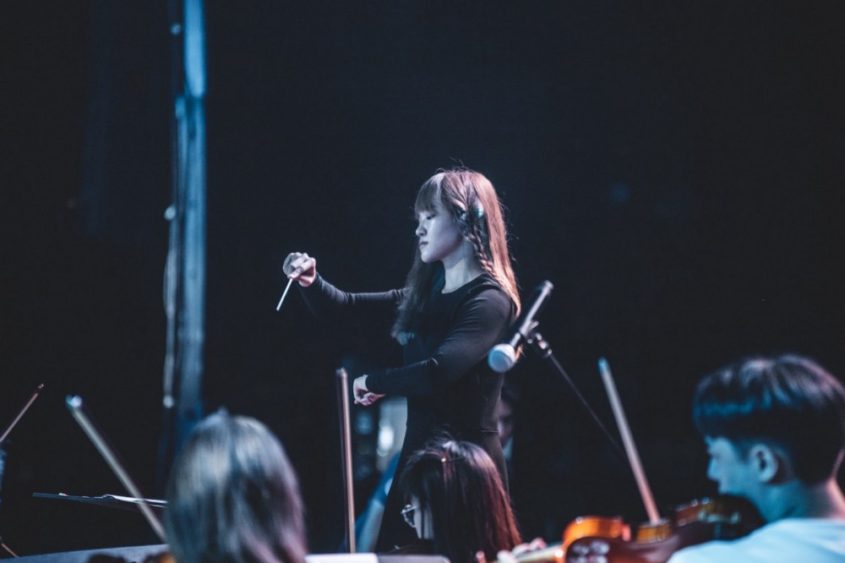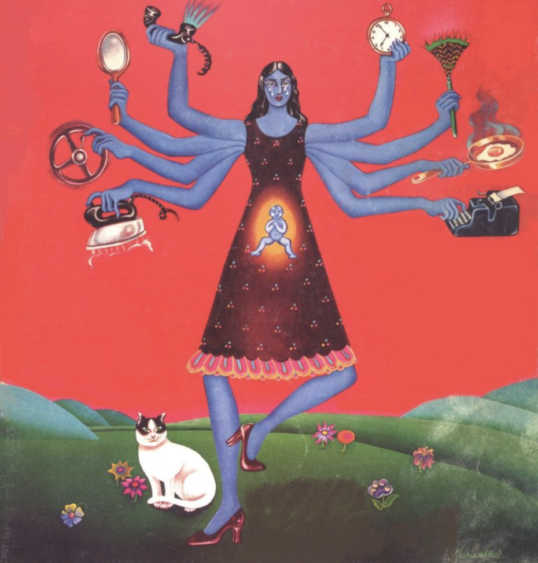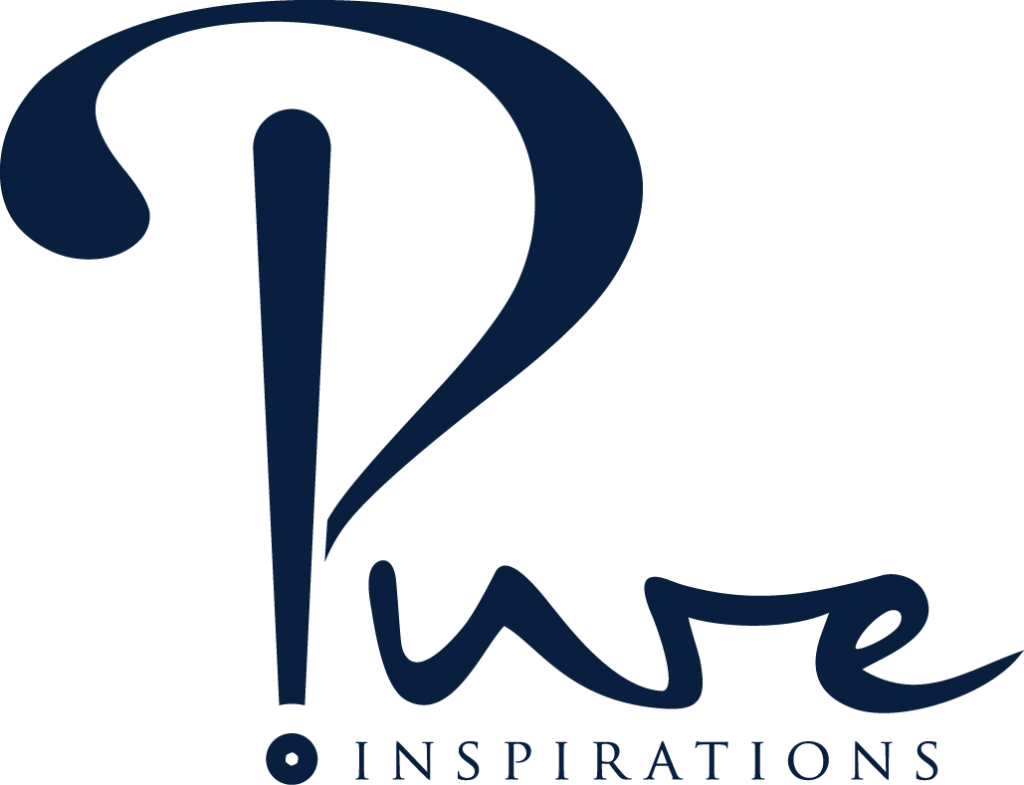The world as we once knew it no longer exists. From leadership to climate change, going digital to working from home, our lives have irrevocably shifted. Ecosystem Leadership has described a shift from one leader at the front of a movement to a more networked approach and August 2020 marks 100 years of women’s suffrage. Where do Ecosystem Leadership, personal growth and women’s empowerment intersect? Is Ecosystem Leadership feminine (and what do the social constructs of gender have to do with feminine/masculine polarity)? As we use an Ecosystem Leadership model to revitalize our economic and social systems, what role will women play?
An ecosystem is defined as “a biological community of interacting organisms and their physical environment,” or “a complex network or interconnected system.” One might look at an ecosystem as a forest. The ecosystem includes all the living beings which reside within it and the interaction they might have. Or, one could look at a family in a home as an ecosystem. The word has typically been used to describe ecology or climate. However, over time and through the work of many scholars, the word has evolved: from describing ecology, to human behavior, and now to organizations and companies.
In this discussion, Ecosystem Leadership is about moving from ‘Ego’ to ‘Eco’ system, a term articulated by Otto Scharmer, Senior Lecturer at MIT and Founder of the Presencing Institute, most notably in his book Leading from the Emerging Future: From Ego-System to Eco-System Economies. The book goes in depth to look at our many overlapping systems (economy, governance, education etc) and how we have the capacity to shift our awareness from a singular focused mindset to being able to see and understand the whole.

During u.Lab, a program of the Presencing Institute and MIT EdX, one of the videos that Scharmer uses to explore the theory of leadership is of an orchestra conductor who is holding the whole of the orchestra. In the video, the conductor is vigorously waving the baton, motioning for various musicians to enter the piece at particular times. Each musician has sheet music, meaning on some level they know what to do; but the conductor, with the baton, is keeping the tempo, organizing the energy and articulating the piece into what it is wanting to become. At one moment, however, the conductor drops the baton. It is not an abandonment — he is not walking away. It is a moment of surrender to the crescendo of what is already happening — a moment in which the conductor knows that in order for the next phase of the future to emerge, he must take a stance on the periphery. In describing the video, Scharmer says, “this guy is getting paid to drop the baton!”
In the orchestra metaphor, the conductor at the front is seeing, sensing and holding the whole. In many ways that is Ecosystem Leadership — the ability to see, sense, hold and support the whole. It is becoming the carer of everything as described by Dr. Nannup. It is the ability to surrender and be in the flow of what Scharmer describes as an emerging future. During the GAIA Journey, we described it as the inhale and the exhale — the ability to take in new information, learning and growth and the ability to let that move through. In yoga, it is the breath that unites the mind and body — the active movement of the body, coupled with rest that ignites the shift.
Women as Ecosystem Leaders
On the one hand, it can be said that women are natural ecosystem leaders. Isabel Guerrero, a former VP at the World Bank and now the Co-Founder and Executive Director of Imago Global Grassroots, describes the traits of feminine leadership in her paper, Lessons in Feminine Leadership. While there can be an argument made that gender is a social construct not bound to these traits, there is also a clear case that woman owned companies and women led movements have a distinct leadership style that can be referred to as Feminine. One can get paralyzed (and I have been many times) by the inability to define this polarity in our culture and humanity. The paralysis of not wanting to define it or not wanting to box women into being feminine is, in some ways, our own internalization of perceiving feminine as weak and lower than the masculine. Guerrero describes the feminine traits as the following:
“Studies about the characteristics of female leaders show that the feminine values cooperation over competition; consensus over control; teamwork over hierarchy; intuition and sensing more than the rational; long term gains more than short term success. Women have natural tendencies to listen and to have empathy; to involve others and build relationships; to connect with others and to build networks. Most women want to work in a place where they can have their voices heard and enact systemic change within a community.”
These are the very same values and characteristics we might describe in our shift from Ego-System to Ecosystem Leadership: cooperation over competition, consensus over control, teamwork over hierarchy, and to connect with others and build networks. It would be fascinating to explore: are women predisposed to these tendencies biologically or are they learned characteristics based on our social, gendered, upbringings? I won’t even begin to attempt to answer that now but I will posit, women, and those who identify with these characteristics are actually the leaders we need now. Take for example, Jacinda Ardern and Angela Merkel, leaders of nations who handled the Coronavirus outbreak exceptionally well.
Abby Wambach, in her book, Wolfpack, describes the association of women and ecosystem leadership perfectly. During the Presencing Institute’s Ecosystem Leadership Program in 2019, I shared this video with the group. It depicts the wolves returning to Yellowstone (a calculated, ranger-led decision) and a choice which ultimately changed plant life, animal life and the course of the rivers, improving the life of the entire ecosystem.
Wambach uses the same story to describe her experience on the U.S. Women’s National Team. She says,
“See what happened there? The wolves — who were feared by many to be a threat to the system — became the system’s salvation. Now, look around our world today: See what’s happening here? Women — who are feared by many to be a threat to our system — will become our society’s salvation. We are the ones we’ve been waiting for. We. Are. The. Wolves.”
Women have a unique position now. We could look at it a few ways. Perhaps it is the way the wolves inherently operate that gives them the ability to be the acupuncture point for shifting the ecosystem. Perhaps the wolves learned how to act this way because of their surroundings. Or, perhaps it is because they are on the periphery of the whole for so long that when they come in, they bring a balance back that was missing. To bring the analogy home, perhaps our desire to sanitize society by making everything white/male or in service of white men has pushed women and women of color (and anything not white/male) to the edges. Agreeing with Abby, we are the wolves. We are the ones we have been waiting for.
Women as Carers of Everything
Dr. Noel Nannup, a prominent Noongar Elder featured in the GAIA Journey held by the Presencing Institute, reminds us: our job as humans, and ecosystem leaders, is to be “carers of everything.” As human beings on the planet, it often seems easier to compartmentalize and fragment out the parts of things that don’t feel good. We learn to focus on an ‘area of expertise’ and spend our lives zero-ing in on it. We hope that our governing leaders (in government or business or somewhere!) will take on caring for the whole but we forget that it is actually each and every one of us needing to take responsibility. Women (most) have a biological function making us suited to care for everything. These traits show up in the feminine leadership mentioned earlier: seeing long term vision, holding space, prototyping with an understanding of a gestation period, caring for the development and wellbeing.
All of that said, where there is light, there is also shadow. Feminine leadership, female leadership, caring for everything — these don’t come without shadow and it is important that we caution ourselves, as we build the movement, to be sure that we hold an awareness to both.
A dear friend and Women Together speaker, Tiffany Dufu, CEO of The Cru, wrote a book called Drop the Ball: Achieving More by Doing Less. Dufu was a Chief Leadership Officer at Levo League and a launch team member for Sheryl Sandberg’s Lean In. In her book, Dufu asks the question, what happens when a high achieving woman drops the ball? She describes a woman who spent her life getting straight A’s, honors, promotions and believing she not only could but needed to do everything. As an achiever or an over-achiever, she learned how to play ball in society as it has been developed and currently runs. She had reached superwoman, multi-armed goddess status. That image is actually a sadly familiar one — it is one we recognize as something we feel a need to be, are trying to become and is also never quite attainable. At some point Dufu realizes that she could not and did not need to do it all. Not only did she not need to do it all, passing off certain tasks — having someone else step in — might actually mean it would get done better.

So, with Dufu’s work on both the launch of Lean In and then her own body of work Drop the Ball, what does it mean for women to be Ecosystem Leaders?
Women are not only carers of everything, women see themselves as needing to take ON everything. In the same breath as we say, “look to women as leaders in the global transformation for civilizational renewal needed now,” we must also look at the components of carrying society that we place on women and the fact that women, women of color and, what is traditionally known as women’s work, is extraordinarily undervalued in our society. Former U.C. Berkeley Sociology Professor, Arlie Hochschild, in 1989 wrote, Second Shift, looking at the impact of women working and coming home to what she described as, “a second shift” of taking care of the household. While roles are shifting and changing and Super Bowl ads are now gearing towards male diaper changers, the expectations that we as women put on ourselves can be massive. Becoming recognized as Ecosystem Leaders, if not done appropriately, could stand to exacerbate the problem before it actually solves it.
It is a similar question for any grouping of people who have dealt with extensive oppression. One tenet of Ecosystem Leadership is that we look to the periphery, move out to the margins, in order to see the whole. Oftentimes that means we will use tools like: stakeholder dialogues, empathy and dialogue walks in order to deepen our understanding of a different perspective. While these are important tactics and incredibly useful tools, we must make sure that we are doing this in right relationship and equal exchange. For example, as we look to lift up Black voices in our society, we must temper our expectation and ensure that we are not placing an undue burden without fair remuneration. If women and people of color in a system are being paid less for the same work, or if their work isn’t being valued by society, it’s important that leaders have the dialogue in service of systemic change and with an equal valuation on the work.
The juxtaposition outlined is a cautionary tale. How often have we, as a society looked for the hero with the superpower? Scharmer, in this article, describes the next superpower as being awareness based collective action. Women’s voices are needed at the helm of this movement. Black, Indigenous, People of Color, Women, Trans, Non-binary folks — people who have been at the margins of society, have so much to contribute to a balanced, whole society, just as an ecosystem needs all of its parts. The welcoming of these voices requires us to release the pressure of assimilation or the desire to bring these voices in only in a way that feels suitable to the dominant culture/society and we must ensure that they are valued for their inherent worth.
The Work
It is not enough to talk about it, write about it, or generally pontificate about it. There is work to be done:
For those readers who identify as women or non-binary femmes or trans or anywhere on the gender spectrum (that isn’t white/cis/hetero): what does it mean to be an Ecosystem Leader? It means that it is time for us to activate these deep sources of knowing that live within us. It means that our voices matter and that our ways of being are needed now more than ever. It also means that we have to know our value in society and not let our work and contributions be devalued. Ava DuVernay, first black woman to direct a film nominated for a Best Picture Oscar, said:
Regarding glass ceilings… I’m mostly bolstered by folks who create their own ceilings. I’m less interested in banging down the door of some man who doesn’t want me there. I’m more about building my own house.
For those readers who identify as women of color: all of that multiplied by 100.
For those readers who identify as men, white or cis-gender — if you’ve gotten this far in this article, it’s very likely that you have already been doing a great deal of this work yourself. You are likely conscious and operate from an awareness based place. However, if you have never questioned your power or role in society (and even if you have): it’s time for inquiry! Question your values, do some deep reflection, take time to unlearn, explore what a society built for wellbeing of all might look like and re-examine your own role. Then, be the change. Role model listening to women, shopping at women-BIPOC owned business and reframing your own mental models. Trust women. Trust Black women.
There is enough pie for everyone. Change is possible. One of the key components for all of us, regardless of our identity affiliation, is to explore where the voices of judgement, cynicism and fear are holding us back. It’s time we connect with our highest aspiration for ourselves and the world — and actively work towards that vision. Woman, man, somewhere in between or beyond. We each have an inherent birthright — it is not to extract resources from our world for our own greed and gain, it is to care for each other and our world in whatever way we can, with all of the gifts we have. We must recognize those gifts in ourselves and each other, be the Wolfpack and continuously lift one another up. Women, we are uniquely poised to do this and it is time. Let’s do this, together.
About the Author: Antoinette Klatzky, Executive Director, Eileen Fisher Leadership Institute. Host/Co-Producer, Women Together. antoinetteklatzky.com

